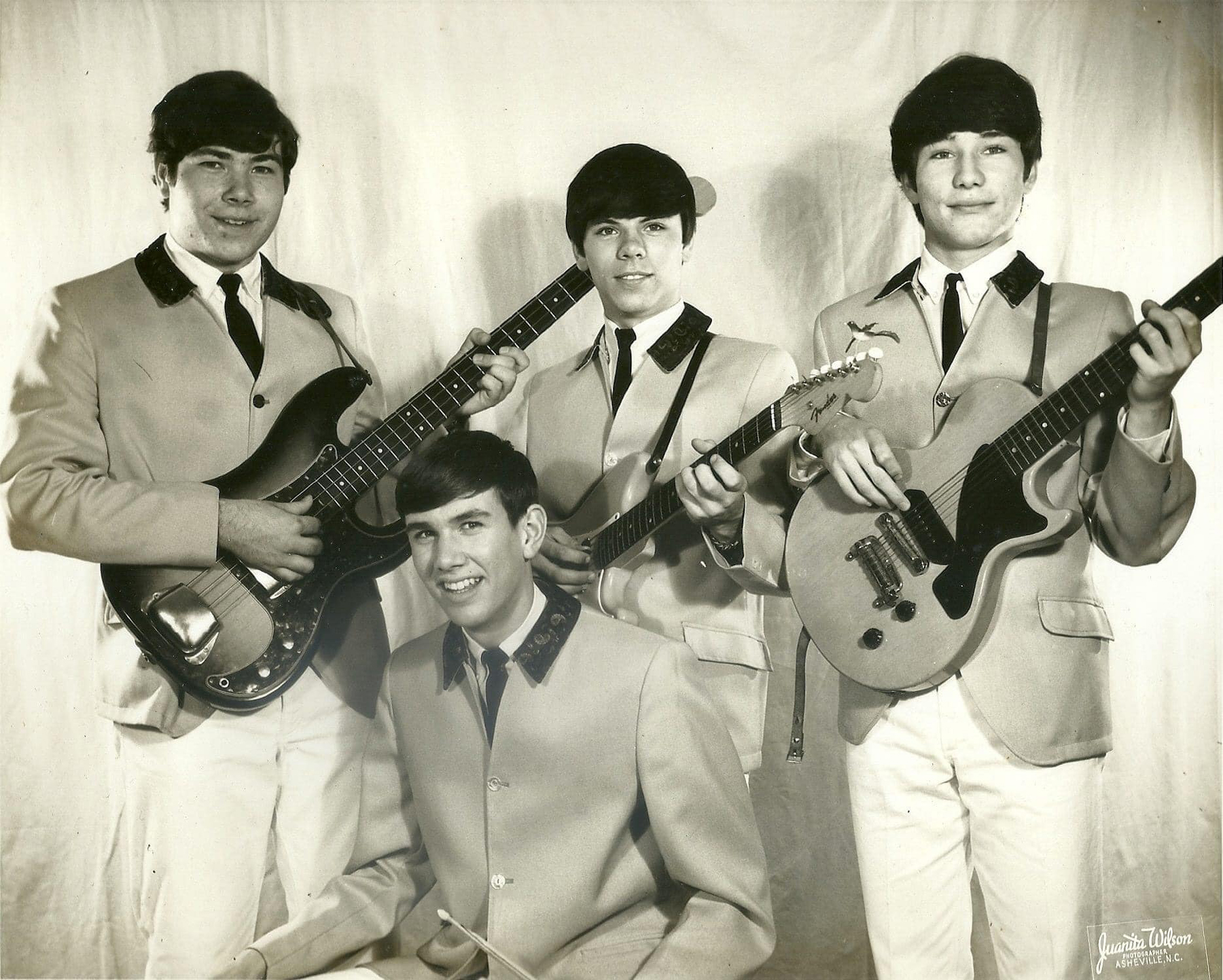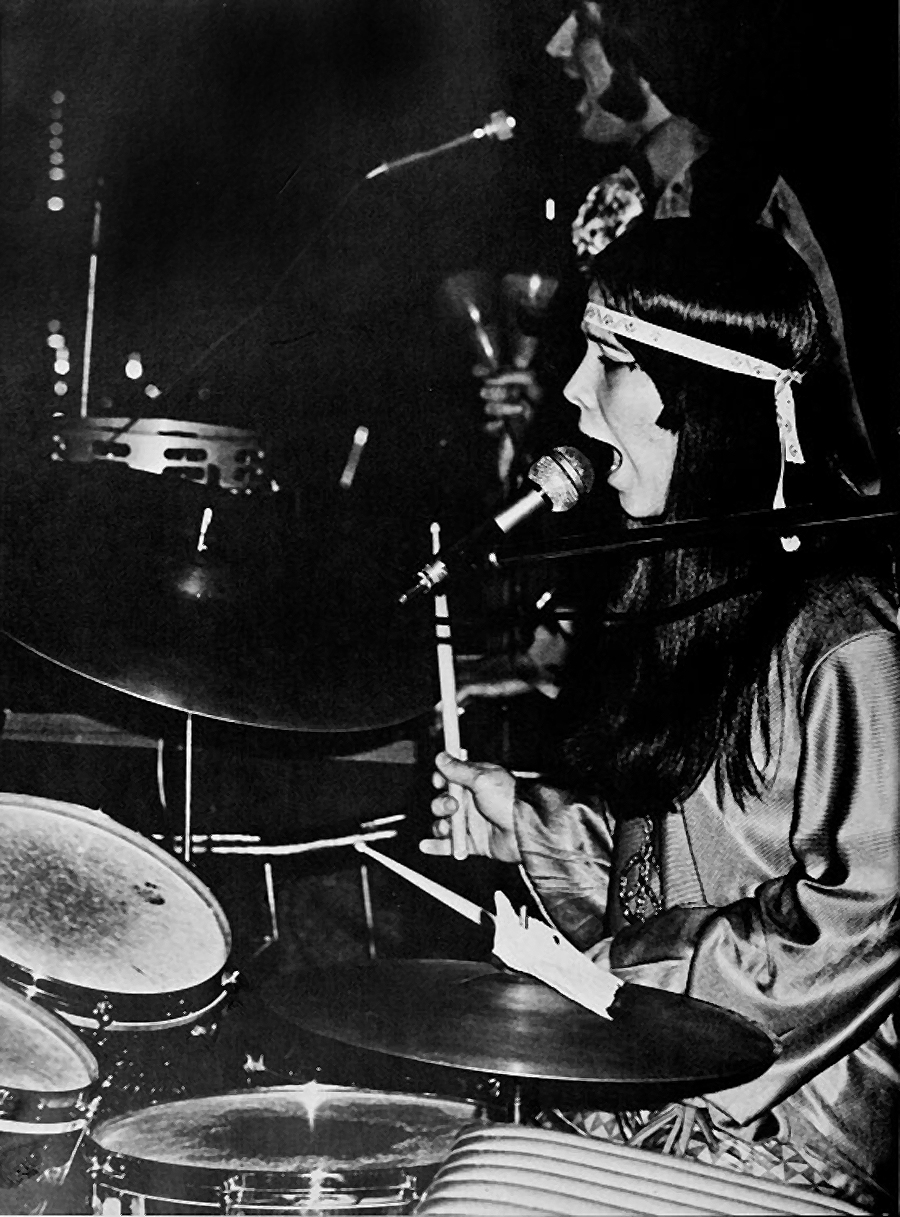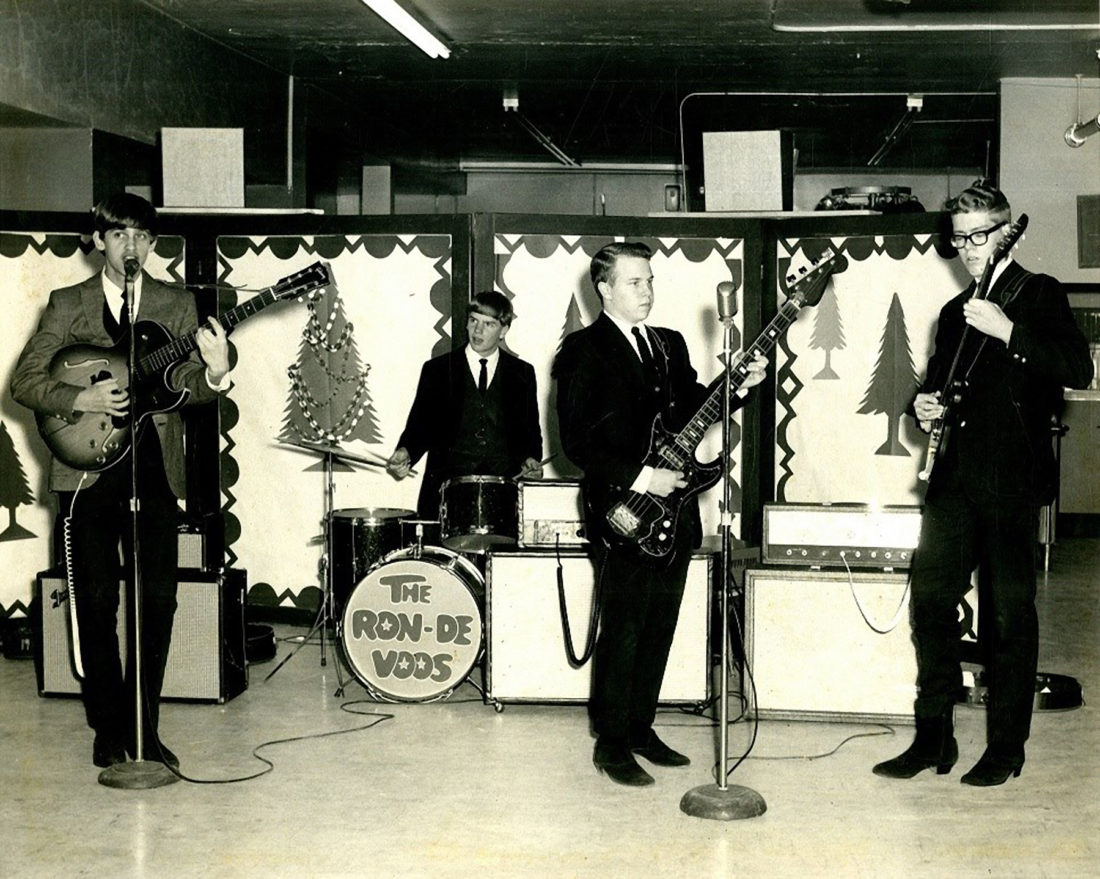The garage rock movement of the mid-1960s yielded a bumper crop of rock ‘n’ roll bands. Inspired by British Invasion groups like The Beatles, Rolling Stones, Yardbirds, The Kinks, The Who and The Animals, teenagers across the U.S. picked up electric guitars, basses, drums and combo organs, forming bands of their own. And a surprising number of them found record labels willing to record and release their music.
More than 50 years later, music fanatics treasure the innocence and spirit captured in these recordings, including a pair of North Carolina-based music historians — Vance Pollock and Ken Friedman — who curated a new three-CD boxed set. Featuring 80 songs, Psychedelic States: The Carolinas in the 60s will be released Friday, Dec. 9.
During this era, the Carolinas were known more as the home of beach music, says Pollock, who along with his work on the new album is a local deejay with Asheville FM. But, he emphasizes, the harder-edged sounds of garage rock were happening right under the noses of the shag-dancing masses. And the collection he’s helped curate reflects that, focusing specifically on “bands who intentionally didn’t play ‘My Girl’ or ‘Hey Baby,’” he says.
“And what [those bands] lacked in expertise, they gained in verve and passion,” adds Friedman, who is based in Chapel Hill.
The garage rock movement, continues Friedman, had an openness about it, a characteristic that connects it with the punk scene of the ’70s. “You didn’t have to be The Beatles; you didn’t have to be an expert,” he explains. “You could get out there and create a record.”
Members of three Western North Carolina bands featured on Psychedelic States — The (Fabulous) Wunz, The Ron-De-Voos and Orange Purple Marmalade — spoke with Xpress about their fond and vivid memories of the music they created more than a half-century ago.
The Wunz and onlys

In the mid-1960s, the teenage rock craze wasn’t limited to major metropolitan areas. Even Asheville — then with a population of nearly 59,000 — had a vibrant scene. And at the top of that list was The Wunz.
“It was a great time in Asheville,” says Jim Stover, who played rhythm guitar. “Lots of bands sprang up, and we were all kids. I was not quite 16 when I got asked to join The Wunz.”
With Stover on board, the group — whose additional members included Coleman Ramsey on bass, Bob Garner on drums and Bruce McTaggart on lead guitar — quickly put together a solid set list.
“I would say that 80% of our repertoire was Beatles,” Stover recalls. The Wunz earned a well-deserved reputation for their ability to sing and play “Penny Lane” and some of the Fab Four’s more challenging material. “Some people called us the ‘Asheville Beatles,’” Stover says with pride.
Throughout their three-year stint, The Wunz played regular gigs at their high school, Lee Edwards (now Asheville High) as well as shows at North Buncombe High and Asheville Catholic. “Eighty dollars seemed to be the going rate for us in those days,” Stover remembers.
But things quickly took off from there. Stover recalls a ballroom gig at the top of the Battery Park Hotel (today’s Battery Park Senior Apartments) as well as in the penthouse of the Northwestern Bank Building (now The Arras). “Our manager, [Gary Garner] was at Clemson, so we played fraternity parties, too,” Stover says.
Garner later rechristened the band as The Fabulous Wunz. And that’s how the group would be credited on their only release, a 7-inch single, “If I Cry” backed with the song “Please.” Stover wrote both tracks, released in 1966 on Pyramid Records, a short-lived, singles-only independent label based out of Burlington, N.C.
The Fabulous Wunz were primarily a live group. But Stover’s most treasured memory of his time with the band is the experience of going into that studio and cutting those two songs.
Equally thrilling, he continues, was the band’s next gig at Lee Edwards High. “We played in the cafeteria and sold our records for a buck apiece,” he recalls.
“It was cool to join up with The Wunz,” Stover continues. “I wish it could have lasted longer because we had more songs.”
But he has no serious regrets about opportunities missed.
“Everything runs its course,” he notes. “And that certainly did.”
Trip of the imagination
Mike Baker was a 13-year-old student at Hall Fletcher Junior High when he experienced a musical epiphany on the evening of Sunday, Feb. 9, 1964. That night he (and an estimated 73 million other Americans) sat transfixed in front of the television watching The Beatles on “The Ed Sullivan Show.”
Thus inspired, Baker acquired and learned to play the guitar. By the time he was 15, he was accomplished enough to form the group, The Ron-De-Voos with Bill Graham on drums, Ron Watt on bass and Doug Kilgo on guitar.
“There were already some [local] musicians who were two, three years older than us, like The Wunz,” he says. “They had already made their mark; we were part of the second wave of groups.”
Along with covering songs, Baker wrote music. His band’s track, “Trip So Wild,” is a first-person tale of a young man struggling with heroin addiction.
“I wanted to write a serious song,” Baker remembers, noting that to this day he has never used illicit drugs. “By the act of imagination, I came up with the idea of a journey into the heart of darkness.”
More than a half-century later, the 1967 song’s inspiration remains a mystery, even to its composer. “How I came up with that at the age of 15, I couldn’t tell you,” Baker says with a laugh.
The mysterious track is only one of a handful of original Ron-De-Voos tunes. “Local bands were cover bands,” he explains. “It was more important to us to get that song list fine-tuned and find gigs to play.” But his bandmates were receptive when their guitarist brought in the self-penned composition. “They loved it,” Baker remembers. “So, we decided to go for it, and we found that little label, Mastertone.”
On its original release, few if anyone outside Asheville heard the song. But the Ron-De-Voos’ lone A-side hasn’t disappeared into total obscurity. When music historian Richie Unterberger published his 2003 history of folk rock, Eight Miles High: Folk-Rock’s Flight from Haight-Ashbury to Woodstock, he praised the song in spite (or perhaps because) of its lyrical subject matter. Still, he asked rhetorically, “Could anyone have reasonably expected it to have gotten played on AM radio even once, let alone become a hit?”
For their part, the four musicians in The Ron-De-Voos may have harbored some hopes of stardom, but Baker says that for the most part he was “grounded in the fact that we were amateurs.”
Wistfully pausing a beat, he adds, “But thinking back, I guess any kid would dream, wouldn’t he?”
Orange, purple, pink and green

In WNC, Orange Purple Marmalade was an especially groundbreaking band, playing psychedelically tinged rock. The group featured Theresa Crouch (today, Theresa Justus) on drums and vocals, Terry Justus (Crouch’s then-boyfriend and future husband) on lead guitar, Bobby “Hobby” Pruitt on rhythm guitar, Adrian Rouillon on bass and Chuck Carter on organ.
Theresa Justus got her start as a drummer while in ninth grade at Hendersonville High School; the band director recruited her to the school band. “I didn’t get a kit until 11th grade,” she says. Justus remembers buying her set from a guy who was getting married and needed the cash. “This was 1966,” she points out. “So, 50 bucks went a long way.”
Justus worked hard to develop her drumming skills, and people noticed. Her debut with Orange Purple Marmalade was at a Hendersonville sock hop in 1967. In short order, gigs became plentiful for the tight, accomplished band. Not yet the legal age to play bars, the group had no shortage of gigs in front of younger audiences at Scout cabins and teenage canteens.
Over time, Orange Purple Marmalade developed an extensive repertoire, with enough songs for three sets per night. “We’d do a whole set of cover songs,” Justus says, “and then for the second set we’d play all originals.” After a break, the group would return for their final set of the night. “We’d end that with a drum solo,” she recalls with pride.
Orange Purple Marmalade entered Galaxie III Studios in Taylorsville in 1969, recording basic tracks for a pair of songs written by Pruitt. But in a sequence of events common to the music industry of that era, the band didn’t get credit for its work in the studio. “I don’t know the story on that whole shebang,” says Justus.
But through independent research, Pollock asserts his understanding of the situation.
“The band was playing a string of beach clubs in New England, so they were out of the loop,” he explains. “Producer Dave Smith decided that their song ‘Pink and Green’ would be the next single on his Bandit label.”
With Orange Purple Marmalade unavailable for vocal overdubs, Smith instead brought in Weaverville-based singer Shirley Hughey. The record went out with her name on the label; Theresa and her bandmates didn’t learn of this until much later. Of the group, only Pruitt is credited on the cut.
“It was kind of a shady deal,” Pollock says.
The band eventually changed its name to Justice, altered its style and went on to a successful career touring the Eastern Seaboard through the 1970s and beyond. Terry Justus passed away in 2010; Theresa Justus still owns her big drum kit.
Back in those heady days, Theresa Justus recalls that she and her bandmates had some sense of being part of a larger musical movement, but they never got too philosophical about it. “My favorite memory is just playing good music and playing to a good fan base,” she says.




You left out the big rival of the Fabulous Wunz … Bee Bumble and the Stingers. I think they still play some occasional gigs and did manage to defeat the Wunz in at least one battle of the bands back in the day.
Yes, I did leave them out because — unlike the three groups at the core of this feature — their music is not featured on the new compilation. In fact I’m not aware of any recordings made by Bee Bumble and the Stingers (though I’d be delighted to learn of some.) The garage rock of WNC is a much larger story than can be told in a short feature. At present, Vance Pollock’s discussion group on FB is the place to go for more.
Thanks for the info.. I was a couple of years older than the Wunz and Bee Bumble but lived about 2 doors between Bob Garner (Wunz) and Steve Stewart (Bee Bumble)